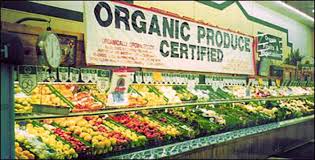
Breaking News
 EXCLUSIVE: "The HUGE Elephant In The Room Is Actually What Jeffrey Epstein Was Best At..."
EXCLUSIVE: "The HUGE Elephant In The Room Is Actually What Jeffrey Epstein Was Best At..."
 EXCLUSIVE INTERVIEW: Republican Candidate For Texas Governor "Doc" Pete Chambers Joins...
EXCLUSIVE INTERVIEW: Republican Candidate For Texas Governor "Doc" Pete Chambers Joins...
 Epstein Files Trigger Political Fallout Across Europe
Epstein Files Trigger Political Fallout Across Europe
 Conjoined twin 'influencers' who have gained more than 280,000 followers with their intimate
Conjoined twin 'influencers' who have gained more than 280,000 followers with their intimate
Top Tech News
 How underwater 3D printing could soon transform maritime construction
How underwater 3D printing could soon transform maritime construction
 Smart soldering iron packs a camera to show you what you're doing
Smart soldering iron packs a camera to show you what you're doing
 Look, no hands: Flying umbrella follows user through the rain
Look, no hands: Flying umbrella follows user through the rain
 Critical Linux Warning: 800,000 Devices Are EXPOSED
Critical Linux Warning: 800,000 Devices Are EXPOSED
 'Brave New World': IVF Company's Eugenics Tool Lets Couples Pick 'Best' Baby, Di
'Brave New World': IVF Company's Eugenics Tool Lets Couples Pick 'Best' Baby, Di
 The smartphone just fired a warning shot at the camera industry.
The smartphone just fired a warning shot at the camera industry.
 A revolutionary breakthrough in dental science is changing how we fight tooth decay
A revolutionary breakthrough in dental science is changing how we fight tooth decay
 Docan Energy "Panda": 32kWh for $2,530!
Docan Energy "Panda": 32kWh for $2,530!
 Rugged phone with multi-day battery life doubles as a 1080p projector
Rugged phone with multi-day battery life doubles as a 1080p projector
 4 Sisters Invent Electric Tractor with Mom and Dad and it's Selling in 5 Countries
4 Sisters Invent Electric Tractor with Mom and Dad and it's Selling in 5 Countries
Demand for organic food creating new "gold rush" for producers

(Natural News) The demand for organic food has grown so dramatically in recent years that experts are likening it to a "gold rush mentality," as producers scramble to transition their fields to earn organic certification.
2015 saw a 12 percent rise in organic sales over the previous year, reaching $6.2 billion. The increase is even more dramatic when viewed over the longer term; organic spending has risen by 72 percent since 2008. Farmers are struggling to keep up with the surge in demand for organic food, with the proportion of American crop land devoted to organic production sitting at a measly 1 percent.
While the prospect of a greater organic food supply in the future is good news for consumers, some growers have expressed concern that they will be outbid for sources of organic feed as bigger firms enter the fray. In fact, some food giants are already offering financial incentives to spur more farmers to transition to organic.
Making the switch can be a costly endeavor, although it ultimately proves to be more profitable in the long run, as organic agriculture commands higher prices. Farms need to be free of any prohibited chemicals for a period of three years before they will be granted the certification, as the soil needs time to recover from chemical exposure. In the meantime, farmers cannot reap the benefits of higher organic prices, yet they must spend the money required to make the transition, which can be very difficult financially.
Farms getting help with organic transition
General Mills recently launched a program to buy organic milk at prices that were higher than the market price from the Organic Valley cooperative, with the stipulation that Organic Valley must place the extra money in a fund that can help reduce the costs for dairy farmers as they make this transition. Another program entails allowing farmers who are in the middle of the shift to organic to charge partial markups during the switch.
At the recent Organicology conference in Portland, many speakers and attendees came out in favor of a "transitioning to organic" certification that is being considered by the USDA and the Organic Trade Association. It could enable those farmers in the second year of the transition to possibly use the label to justify a slightly higher price as they inch closer to becoming fully organic.
Costco, meanwhile, has started lending money to farmers in order to help them increase their organic output to keep up with demand. Part of the money is being used to buy 1,200 acres of land and equipment to grow organic food in Baja, California. The retailer has also bought the first rights to certain food that is grown on the land. This initiative is beneficial all round, with the farm receiving the financing to boost its organic operations, Costco able to increase its bottom line, and consumers gaining more access to the organic options they desire.
Oregon Tilth transition services coordinator, Drew Katz, said that organic production could prove to boost the economy of rural areas. Meanwhile, the University of Wisconsin has started offering a course on organic grain production geared toward those from conventional farming backgrounds; enrollment doubled in its second year.



